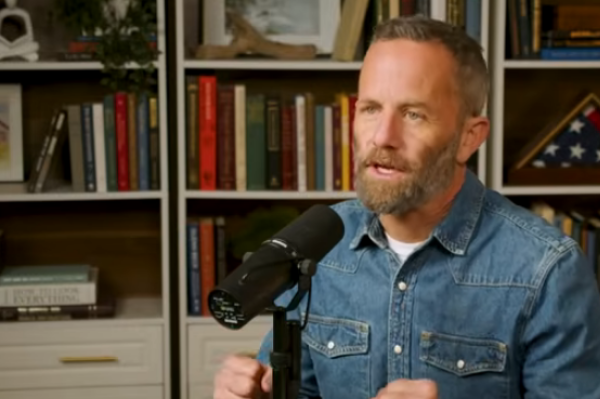44% of PCUSA ministers say they aren't trained to handle mental health issues in church: survey

A significant minority of ministers belonging to the Presbyterian Church (USA) say they are not trained to handle mental health issues in their churches, according to a recently released report.
A PC(USA) minister survey on mental health issues found that 44% of the 4,507 pastors surveyed reported that they “have not been trained to recognize mental health concerns or how to minister to those individuals and families who face them.”
Another 22% of clergy responded that their mental health training was “on the job or learn as you go,” while 18% reported getting training at a seminary or college. Sixteen percent reported receiving training as “a part of continuing education.”
Among the respondents who said they had training on mental health issues, 61% said that the training improved their “ability to respond” to mental health issues in the church.
Jashalund Royston and Susan Barnett of PC(USA) Research Services, who oversaw the report, wrote in an article published Monday that the surveyed clergy “affirm their need for more training.”
“A significant number of ministers have concerns about their abilities to recognize and respond appropriately when confronted with an issue related to mental health or substance abuse,” wrote Royston and Barnett.
“Forty-four percent report that they have not been trained to recognize mental health concerns. Even more, 54%, view themselves less than capable to respond effectively to a colleague who shows signs of a mental health concern or substance abuse.”
The report drew from data taken from the PC(USA) Minister Survey, conducted from September to November of 2019, with a sample of about 4,500 ministers, representing 23% of all ministers in the mainline Protestant denomination.
In recent years, as with other denominations and churches, PC(USA) has looked into ways to improve its approach to mental health issues among clergy and laity.
In February 2020, the PC(USA) Presbyterian Mission Agency’s Compassion, Peace & Justice Ministry released the findings of a survey of 6,000 members of the Presbyterian denomination regarding mental health and the Church.
The 2020 survey found that while 54% of church leaders said their church was interested in learning more about mental health ministry, only 30% indicated that they were equipped to handle that kind of ministry.
“PC(USA) members, leaders, and ministers want to address the issues of mental health and mental illness in their communities and churches but do not know what to do, or what resources are available to them and, in general, are unprepared to act,” reported the study.
“While a solid foundation has been laid with the recent launch of the mental health ministry grant program, website, and Presbyterian Mental Health Network (PMHN), this work is still nascent and in need of support.”
The findings come as most pastors and staff members at churches are not licensed mental health professionals trained on how to treat mental health problems within the congregation.
Data from LifeWay Research, the polling and research division of the Southern Baptist Convention, has shown that just 10% of pastors say they hold a graduate degree in counseling or psychology, while 38% said they had taken graduate-level courses in counseling.
LifeWay Research has also found that about 76% of pastors say they refer church members to a professional counselor if the help they seek requires more than two counseling sessions.
A 2014 LifeWay survey found that about 14% of churches have a counselor trained in mental health on staff.





















